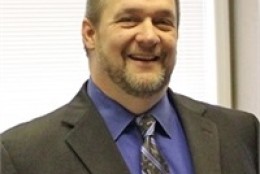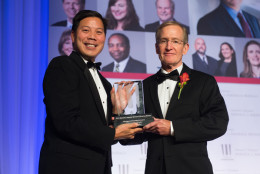Commentary
-
Webster Mudge, a senior director for technology solutions for Cloudera, contends that agencies can make their networks and data safer using analytics to get ahead of the bad guys.
October 26, 2015 -
Todd Helfrich, director of federal sales, ThreatStream, makes the case for why the Cybersecurity Sharing Act of 2015 will make a real difference in protecting the public and private sectors from cyber attacks.
October 22, 2015 -
Russ Spitler, the vice president of Product Strategy for AlienVault, argues that the Cybersecurity Information Sharing Act would be duplicative and prescriptive.
October 22, 2015 -
Maybe we should all find at least one colleague who would agree to give us a courtesy pulse-check at the end of the day.
October 22, 2015 -
The Healthy, Hunger-Free Kids Act of 2010 required the Agriculture Department to set different standards for school lunches. The food may be healthier, but now USDA faces a new problem: many students can't stomach the food.
October 21, 2015 -
The Army is shrinking down to about 450,000 soldiers. Congress isn't likely to approve another round of base realignment and closure, but Federal News Radio's DoD reporter Jared Serbu tells In Depth with Francis Rose the Army has adopted a different strategy to get its base footprint in line.
October 20, 2015 -
A new survey by Silverlight Financial and Federal News Radio found federal employees think they are prepared for retirement, but haven’t had the training or preparation necessary to ensure a successful transition.
October 20, 2015 -
The Army works continuously to improve on a basic piece of gear, namely the helmet on top of a soldier's head.
October 16, 2015 -
John D. Cohen, professor in the School of Criminal Justice at Rutgers University, says the National Terrorism Advisory System has sent our advisories in the past.
October 16, 2015 -
Richard Lieberman, a consultant and retired attorney, offers advice to contractors about how to ensure they are protected when they win a request for quote.
October 14, 2015 -
In Depth's Francis Rose says the biggest problem with the public and private sector salary comparison is that no one is quite sure how to compare them. But one thing is for sure: the Labor Department's Mr. Fix-it deserved his government service award.
October 13, 2015 -
The Cato Institute has issued yet another report claiming federal employees are grossly overpaid. Their numbers claim feds make 78 percent more than private sector workers and 43 percent more than state and local workers. If true, those numbers would be alarming and cause for immediate steps to rein in federal pay and benefits. The numbers are generally accurate, but they are not true. How can that be?
October 12, 2015 -
On March 4, the General Services Administration issued a proposed rule that would require contractors to report transactional data from orders placed against GSA’s Federal Supply Schedule (FSS) contract vehicles as well as GSA’s governmentwide acquisition…
October 06, 2015 -
The Chief Human Capital Officers Act of 2002 established the role of the chief human capital officer (CHCO) in the federal government. After 13 years, it is time to take a look at the CHCO Act and see what it did and did not do.
October 02, 2015 -
Why push the down button on the career elevator? According to a report from the Office of Inspector General at the Department of Veterans Affairs, two Washington-based senior executives used their clout to get what amounted to a demotion - one with fewer responsibilities but the same level of pay. The benefit of the demotion, according to the IG's report, was that the two career SESers got to keep their Washington pay levels while transferring to lower pressure jobs in places with more winter sports and better cheesesteaks.
October 02, 2015






